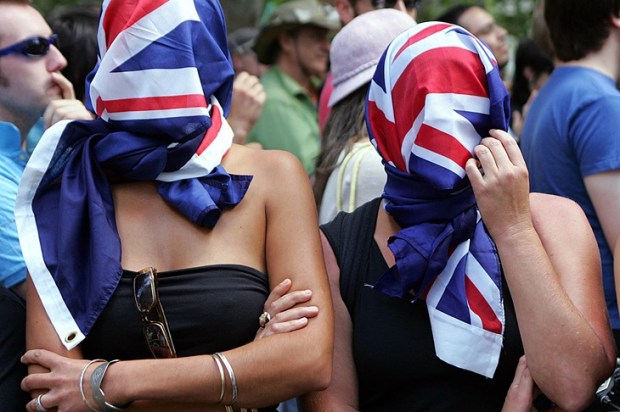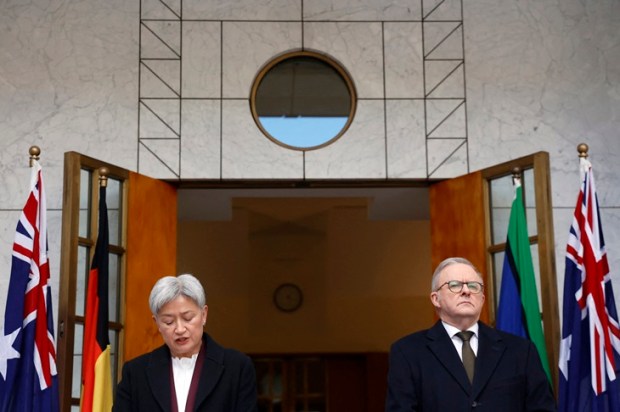(Formerly?) popular beer brand Bud Light has suffered a major thrashing in the public forum since engaging trans social media influencer Dylan Mulvaney – famous for the ‘100 Days of Womanhood’ online saga.
As the perplexed Vox put it: ‘Bud Light sent a handful of beers to a trans influencer and all hell broke loose.’
Due to the de-centralisation of consumer audiences after the breakup of the legacy media, companies have been forced to find new ways to market their products. It’s not enough to toss an ad campaign at the local TV and radio station. Corporations understand that an increasing chunk of consumers exist solely online, particularly if they are chasing the under 35s.
Retailers, makeup companies, and alcohol manufacturers have turned to a lucrative yet dangerous tactic. Modern marketing relies on the use of influencers – ‘famous’ people on social media who have a large collection of followers (which in old money means ‘a customer audience’).
A brand will approach an influencer by sending them a sample of their product for free on the understanding that they make a short video saying how wonderful it is. In return, that influencer gets likes, comments, and views which are monetised by the social media platform. Win-win. These days, large influencers are able to wield a bit of market power and insist on being given sizeable chunks of money in the same way that sports stars are handed brand deals.
Despite this being a slightly haphazard and pirate-ish way of going about things, the same rules apply. If an influencer turns out to be unsuitable for the brand or behaves in a way that upsets the customer base, that company can lose money from the association.
Picking Dylan Mulvaney (and the attached 10.8 million TikTok followers and 1.8 million Instagram followers) was always going to be a risk. The appetite for Woke endorsements is at an all-time low within the wider community while previous Mulvaney sponsorships caused major customer backlashes. On top of this, the impact of trans activism on women’s rights has been trending for over a month. https://twitter.com/EssexPR/status/1646610915326930944
Any brand that wades into this cultural mess has to know what it’s doing and be prepared to defend itself.
It appears that the top brass of Bud Light had no idea they’d been shoved into the maelstrom until it was too late.
As reported by the New York Post:
‘“No one at a senior level was aware this was happening,” an unnamed source told the Daily Wire, a conservative-leaning news site.’
Bud Light sent personalised cans with Mulvaney’s face on the front to celebrate the influencer’s first year living as a woman. (Can you think of anything more feminine than having your face embossed on a beer can?)
Following the brand endorsement, Dylan Mulvaney did the usual influencer thing and uploaded an embarrassingly overdone and false-feeling video advertising Bud Light. It was themed in the Breakfast at Tiffany’s vibe with Mulvaney dressed as Audrey Hepburn’s Holly Golightly – an icon of femininity.
Dylan Mulvaney has become the new brand ambassador for Bud Light. ?
The beer brand even made a special edition Dylan Mulvaney Can ?celebrating his 365 days of girlhood.
(This is not April Fools, it’s actually real)
??????? #dylanmulvaney #trans #transgender pic.twitter.com/xuu87WxrvZ
— Oli London (@OliLondonTV) April 1, 2023
This performance managed to irritate both men and women – for different but equally sincere reasons – leading to a substantial online backlash and a very real instore boycott that has caused the share price to take a tumble.
‘Anheuser-Busch works with hundreds of influencers across our brands as one of the many ways to authentically connect with audiences across various demographics. From time to time, we produce unique commemorative cans for fans and for brand influencers, like Dylan Mulvaney. This commemorative can was a gift to celebrate a personal milestone and it is not for sale to the general public,’ said a spokesperson.
When a brand makes a mistake with social media marketing, the impact on its sales are global – as is the corresponding embarrassment.
According to news.com.au (speaking to a bar about whether they had noticed a change in sales): ‘Sales of Anheuser-Busch bottled products dropped 30 per cent over the past week, while draught beer plummeted 50 per cent, the owner said. Similar stories are found around the country.’ Another said, ‘They’ve already done enough damage in one week to disrupt year-long sales projections.’
It did not help Bud Light that the Mulvaney promo came out on April 1 – April Fools’ – leading women to take the opinion that the beer company was not only mocking womanhood, but playing a practical joke on them.
What followed was the sort of high-profile social media influencer endorsement you don’t want – huge accounts with charismatic culture warriors going out of their way to tell their millions of followers to boycott the brand.
This is the sort of reverse-marketing that does the leg work in the Go Woke, Go Broke philosophy.
Meet Alissa Heinerscheid, Bud Light’s VP of Marketing. She explains her strategy of using “inclusive” marketing to promote the brand to young people.
— Ian Miles Cheong (@stillgray) April 9, 2023
When cultural icons that the Bud Light customer base identifies with strongly express outrage, their influence is probably more powerful than Mulvaney’s. Essentially, this means that a marketing executive saw an influencer’s raw follower figures as dollar signs instead of a risk/reward equation.
It’s a bit like the major marketing push to put adult drag queen performers into preschools. Most people are standing back and saying, ‘What the heck?!’ It’s not that anybody wants drag queens to be banned or erased, parents are pointing out that kindergarten kids are the wrong audience for the product. https://twitter.com/1Nicdar/status/1644004905563176960
Bud Light was left to be torn about by both social media and real life customers for a while, with the company’s value continuing to decline. The extended silence from the company was taken by large chunks of the customer base to be an endorsement of its behaviour, which only fuelled the outrage. It didn’t help that Nike had given Mulvaney a women’s sports bra to parade around in at the same time, meaning that multiple sources were keeping the influencer’s name at the top of the discussion.
Not all publicity is good publicity (ask Gillette). https://twitter.com/EndWokeness/status/1643688085899681816
Eventually, the big boss – CEO of parent company Anheuser-Busch – had to step in and say something about the major screw up of the Bud Light marketing department. Their response is quite interesting.
They issued the following statement:
As the CEO of a company founded in America’s heartland more that 165 years ago, I am responsible for ensuring every consumer feels proud of the beer we brew.
We’re honoured to be part of the fabric of this country. Anheuser-Busch employs more than 18,000 people and our independent distributors employ an additional 47,000 valued colleagues. We have thousands of partners, millions of fans, and a proud history of supporting our communities, military, first responders, sports fans, and hard-working Americans everywhere.
We never intended to be part of a discussion that divides people. We are in the business of bringing people together over a beer.
My time serving this country taught me the importance of accountability and the values upon which America was founded: freedom, hard work, and respect for one another. As CEO of Anheuser-Busch, I am focused on building and protecting our remarkable history and heritage.
I care deeply about this country, this company, our brands, and our partners. I spend much of my time travelling across America, listening to and learning from our customers, distributors, and others.
Moving forward, I will continue to work tirelessly to bring great beers to consumers across our nation.
-Brendan Whitworth, CEO, Anheuser-Busch
In it you will notice a distinct difference from the likes of Nike and Seafolly, who both reaffirmed their devotion to the LGBTQ+ movement. Whitworth did not do that. Instead, he very cleverly said that, ‘We never intended to be part of a discussion that divides people.’
While women would have liked an apology, a company that decides to exit the culture wars is a smart company.
Playing politics with a brand turns that brand into a political party, which alienates roughly half the population immediately and then ties the brand to the public political mood. It’s not just a bad idea, it’s a terrible idea.
The only people really upset by the response is the evangelical Woke infrastructure that sees it as a ‘walking back’ of Diversity, Equity, and Inclusion commitments.
Well, good.
Companies shouldn’t have random ideological, racial, and sexual quotas to fill. They exist to sell products – not politics.
In this case, Bud Light has nudged itself back toward sanity. We’ll see if it lasts.

























